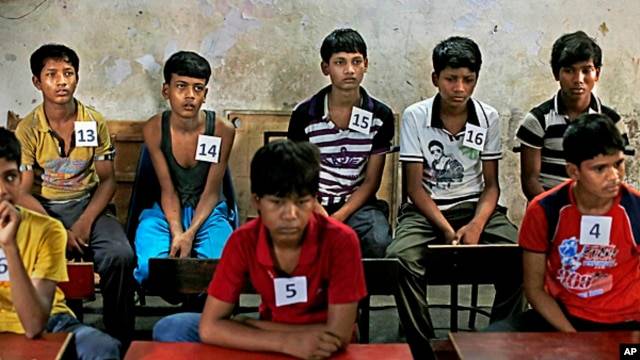chanel
Silver Member
This conversation has been bugging me all day so I decided to post it here and see what you guys think. Before everyone gets all political, I'd like to hear your thoughts on the allegations first. For the sake of argument, let's pretend this was a Kiwanis meeting.
It's very lengthy and a bit coherent, but this is what I understand. "Cory" is a registered sex offender and perhaps a bit loopy. He claims that another occupier by the name of Robert Blue invited the homeless occupiers to come work for him when the Occupy Phila. encampment was disbanded. Cory claims Blue is running a human trafficking network and that 23 people are being held as slaves. Another woman "Dani" corroborated Cory's story and said she and other females at the encampment had been sexually abused by Blue.
The Occupy WG did the right thing and told them to go the police and the press.
Cory and Dani's whole story is here:
https://www.facebook.com/opnotes#!/.../op-ga-notes-saturday-1282012/314235528612818
Could this be true?
Do you think anyone will investigate?
Do you think it will be in the newspaper?
This reads like a Lifetime Movie. Comments?
It's very lengthy and a bit coherent, but this is what I understand. "Cory" is a registered sex offender and perhaps a bit loopy. He claims that another occupier by the name of Robert Blue invited the homeless occupiers to come work for him when the Occupy Phila. encampment was disbanded. Cory claims Blue is running a human trafficking network and that 23 people are being held as slaves. Another woman "Dani" corroborated Cory's story and said she and other females at the encampment had been sexually abused by Blue.
The Occupy WG did the right thing and told them to go the police and the press.
Cory and Dani's whole story is here:
https://www.facebook.com/opnotes#!/.../op-ga-notes-saturday-1282012/314235528612818
Could this be true?
Do you think anyone will investigate?
Do you think it will be in the newspaper?
This reads like a Lifetime Movie. Comments?


